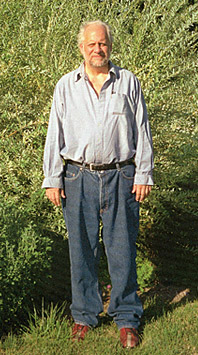The Olive Branch of Government
Call this the decade of our discontent—the Terrible Teens. The only thing Americans, especially members of Congress, agree on is that we disagree, disagreeably. Amid the cacophony, we can’t even unite on the pronunciation of “divisive”, a word now enjoying currency; you say “di·vai·siv”, I say “di·vis·iv”. We have taken leave of our consensus.
There have been cracks in the American political firmament since the beginning. Accounts of the Constitutional Convention, held in Philadelphia from 1787 to 1789, portray a disputatious gathering of warring factions. A central conflict was the quarrel between the smaller and larger states about legislative representation. In a strictly representative Congress, the smaller states, with fewer representatives, would be outnumbered by the larger states: the tyranny of the majority.
When tempers frayed, contingents of the 55 delegates — of whom more than half were horticulturalists or farmers — would seek relief at the cool retreat of Bartram’s Garden, a nursery and arboretum on the west bank of the Schuylkill River with the most extensive collection of North American trees and shrubs in the world. Representing newly independent states comprising millions of people, the framers relaxed and chatted together.
One afternoon, three delegates, filled with evolving uncertainty, rested from the stress at Bartram’s Garden. The next day they switched their positions on representation, helping achieve the Great Compromise, which engendered our unique bicameral system — House representation rendering the government national, the parity of states’ power in the Senate making it federal. Three garden-loving delegates sowed a historic innovation in governance amidst myriad flowers under a leafy panoply of trees.
Well-versed in Scripture, the Founding Fathers were equally conversant with “God’s Second Book,” also called the “Book of Nature.” That is, nature itself, and especially the language of plants, in which they were fluent. The view of nature as the corollary of the Bible — the animate as the immanent — has figured in Christian theology since the Middle Ages. Nature — its structures and cycles, decay and regeneration, order and chaos — was the wellspring of religious doctrine.
Heaven and Earth were scripture: we tracked stars and planets, learned from famines and floods, studied forests and grasslands. We selected plants and animals to include within our immediate surroundings, the human realm. We tamed and bred them, and, in turn, they helped to domesticate us. We came to rely on the superabundance of herbaceous plants. In particular, seeds and grains enabled us to settle down for good and to survive over time.
And so it came to pass, we cultivated the garden, and the garden cultivated us. The genesis of civilization — the impetus for communities, laws, commerce and culture — the garden became the model for a flourishing society.
Like governance, gardening presents challenges requiring creativity, vigilance and, notably, compromise: the harmonious allocation of limited resources. As in Nature, we must aim for perfect harmony and assume our blessings are conditional.
So, democracy springs from Nature, as well as our natures. Both individuality and community are innate human habits. For Thomas Jefferson, “a free people [claim] their rights as derived from the laws of nature, and not as a gift of their chief magistrate.”
Believing that gardeners, farmers, orchardists and vintners would make the best legislators, Jefferson wrote to John Jay, “Cultivators of the earth are the most valuable citizens. They are the most vigorous, the most independent, the most virtuous, and they are tied to their country and wedded to its liberty and interests by the most lasting bonds.”
Our bickering politicians should emulate our Founding Fathers. Leave off fighting and repair to the United States Botanic Garden right there on the grounds of the Capitol. Reach across its terraces. Commune over its fences. Talk beneath the cool shade of its rare trees. Allow a future Great Compromise to flower and bear fruit.
This article appeared in the Casper Star Tribune
